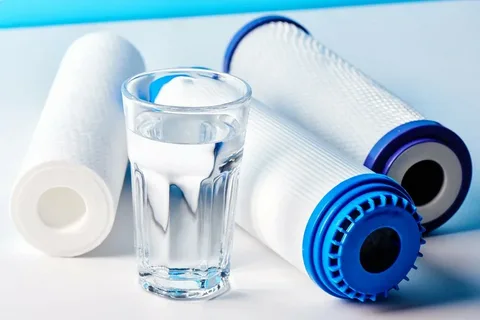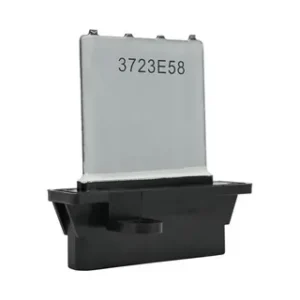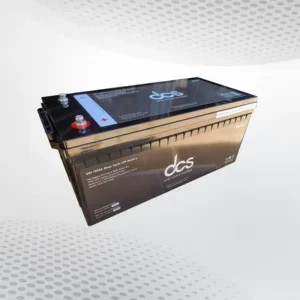Are you tired of second-guessing the purity of your drinking water? Do visions of hidden contaminants and mysterious tastes keep you up at night? You’re not alone! In a world where clean, safe water is more crucial than ever, navigating the myriad options for water filtration can feel like searching for a needle in a haystack. But fear not—this isn’t just any guide; it’s The Ultimate Guide to Choosing and Using Water Filters: Clean Water Made Easy! Whether you’re looking to eliminate harmful substances from your tap or simply enhance the flavour of your favourite beverages, we’ve got you covered.
Introduction to the importance of clean water and the use of water filters
Clean water is essential for our health, yet many people overlook the quality of the water they consume daily. With rising concerns over contaminants and impurities in tap water, investing in a reliable water filter has never been more important. A good filtration system not only improves taste but also ensures you’re drinking safe, clean water.
Navigating the myriad of options available can feel overwhelming. From pitcher filters to under-sink systems, each type offers unique benefits that cater to different needs and lifestyles. Whether you’re a busy professional or a family with kids, there’s a perfect solution waiting for you.
Let’s dive into everything you need to know about choosing and using a water filter effectively! Clean hydration should be easy—let’s make it happen together.
Different types of water filters (e.g. pitcher, faucet, under-sink)
Water filters come in various types, each designed to meet different needs.
Pitcher filters are one of the most popular options for their simplicity and affordability. Just fill the pitcher with tap water, and it will pass through a filter that removes impurities. They’re portable but may require frequent refilling.
Faucet-mounted filters attach directly to your kitchen sink faucet. They allow you to switch between filtered and unfiltered water easily. This type is convenient for day-to-day use but can take up some space on your tap.
Under-sink systems offer a more permanent solution by installing discreetly beneath your counter. These models usually provide higher filtration capacity and better quality water, making them ideal for larger households or heavy users.
Each type caters to specific preferences, so it’s essential to evaluate which suits your lifestyle best before deciding on one.
Factors to consider when choosing Best Water Filter
Choosing the best water filter for your needs can be a daunting task, as there are so many different options available on the market. In order to make an informed decision, it is important to consider several factors that will determine which water filter is the best fit for you and your household.
1. Contaminants in Your Water
The first step in choosing a water filter is to identify what contaminants are present in your water. This can be done by requesting a copy of your local water report or having your water tested by a certified lab. Different filters are designed to target specific contaminants, so knowing what you need to remove from your water will help narrow down your options.
2. Type of Filter
There are various types of water filters available, each with its own advantages and limitations. The most common types include carbon filters, reverse osmosis systems, UV filters, and ion exchange filters. Carbon filters are effective in removing chlorine and organic compounds but may not be as effective against heavy metals or bacteria. Reverse osmosis systems use a semipermeable membrane to remove a wide range of contaminants but can also remove beneficial minerals from the water. UV filters use ultraviolet light to kill bacteria and other microorganisms but do not remove other types of contaminants. Ion exchange filters are good at removing heavy metals such as lead and mercury but may not be suitable for all types of tap water.
3. Water Usage
Another factor to consider when choosing a water filter is how much-filtered water you require on a daily basis. If you have a large household or tend to use a lot of filtered water for cooking or drinking, then you may want to invest in a high-capacity system that can handle large volumes of water efficiently.
4. Maintenance and Cost
Different types of filters require varying levels of maintenance and replacement costs. Some may need frequent cartridge replacements, while others only require occasional cleaning or changing out parts such as UV bulbs. It is important to consider the ongoing costs and upkeep of a water filter before making a purchase.
5. Certification
When choosing a water filter, it is recommended to look for products that have been certified by independent organizations such as NSF International or the Water Quality Association. These certifications ensure that the filter has undergone thorough testing and meets certain standards for contaminant removal.
When selecting the best water filter for your needs, it is important to consider factors such as contaminants in your water, type of filter, water usage, maintenance and cost, and certification. By taking these factors into account and doing thorough research on different products, you can make an informed decision and choose a water filter that will provide clean and safe drinking water for you and your family.
How to properly install and use a water filter
Installing a water filter can seem daunting, but it’s often simpler than you think. Start by reading the manufacturer’s instructions carefully. Each model has specific steps that maximize its effectiveness.
For pitcher filters, rinse the cartridge under cold water before placing it in the reservoir. Fill the pitcher and let it sit for a few minutes to allow proper filtration.
If you’re dealing with faucet-mounted filters, ensure your faucet is compatible. Usually, you’ll need to unscrew the aerator and attach the filter directly to your tap. Tighten everything securely to prevent leaks.
Under-sink systems require more effort. Shut off your water supply first and follow each step closely, from connecting hoses to attaching brackets.
Once installed, run several gallons of water through your new system before using it for drinking or cooking. This helps clear any residual particles from installation materials while ensuring optimal performance right away.
Tips for maintaining and replacing your Water Filter Machine
Proper maintenance and timely replacement of your water filter machine are crucial in ensuring that you have clean and safe drinking water at all times. Neglecting these tasks can result in a decrease in the efficiency of your filter, leading to potential health hazards from contaminated water. Here are some essential tips to help you maintain and replace your water filter machine effectively.
1.Check the manufacturer’s instructions:
The first step is to carefully read the user manual provided by the manufacturer. It contains vital information on how frequently you should change the filters and what type of maintenance is required for your specific model.
2.Regularly clean the exterior:
Wiping down the exterior of your water filter machine with a damp cloth will prevent dust, dirt, and grime from building up on its surface. This simple step will not only keep your machine looking clean but also ensure that contaminants do not enter through any cracks or crevices.
3. Monitor filter lifespan:
Most manufacturers provide an estimated lifespan for their filters, which can range from 3-6 months, depending on usage and quality of water. To ensure optimal performance, it is recommended to replace your filters as instructed by the manufacturer.
4. Keep track of usage:
If you notice a sudden drop in water flow or poor taste from your filtered water, it could be an indication that it’s time to change the filters before they reach their estimated lifespan.
5. Flush new filters before use:
When replacing old filters with new ones, always remember to flush them with clean water before installing them in your machine. This will remove any carbon fines or particles that may have accumulated during storage or transit.
By following these tips, you can ensure that your water filter machine continues to function at its best and provide you with clean and safe drinking water for years to come. Remembering to regularly maintain and replace your filters will not only protect your health but also save you from costly repairs in the long run.
The role of certifications and testing in ensuring the effectiveness of a water filter
When it comes to water filters, certifications can make all the difference. They act as a seal of approval from independent organizations that test and verify filter performance.
Look for certifications like NSF/ANSI. These standards assess how well a filter removes contaminants such as lead, chlorine, and bacteria. A certified product means you’re getting reliable filtration.
Testing goes hand in hand with these certifications. It ensures that claims made by manufacturers are backed by scientific evidence. Without this verification, consumers might end up frustrated with inadequate filtration solutions.
Being informed about certifications helps you choose wisely. It takes away the guesswork and gives peace of mind when filling your glass or cooking meals.
So next time you’re shopping for a water filter, pay attention to those labels. They hold valuable information about what’s really happening behind the scenes in your water purification process.
Comparing different brands and models of water filters
When it comes to water filters, the market is flooded with options. Brands like Brita and PUR are household names, but newer players like ZeroWater and Aquasana are gaining traction.
Brita’s pitcher filter is popular for its convenience and affordability. It’s perfect for those just starting their journey to cleaner water. On the other hand, PUR offers faucet-mounted models that deliver filtered water directly from your tap—great for busy households.
ZeroWater stands out with its five-stage filtration system, which claims to remove nearly all dissolved solids. This makes it a top choice for those who want comprehensive purification.
Aquasana takes a different approach with under-sink systems designed for long-term use. They focus on reducing contaminants while maintaining essential minerals.
Each brand has unique features tailored to specific needs, making thorough research essential before purchasing one that fits your lifestyle best.
Environmental impact of using a water filter vs buying bottled water
Using a water filter significantly reduces plastic waste. Every year, millions of bottles end up in landfills and oceans. Each filtered glass of water means one less bottle tossed aside.
In contrast, bottled water requires extensive resources for production and transportation. This process contributes to carbon emissions that harm the environment.
Water filters promote sustainability by allowing users to refill reusable containers. This simple change can lead to a substantial decrease in single-use plastics over time.
Moreover, many filters improve local tap water quality without the need for packaging materials. Cleaner drinking options are accessible right from your kitchen faucet.
Choosing filtered water supports eco-friendly practices while ensuring hydration needs are met efficiently and responsibly. It’s not just about taste; it’s also about making smarter choices for our planet’s future.
Conclusion
Choosing quality water filters is an essential step towards ensuring you have access to clean and safe drinking water. With so many options available, it’s crucial to consider factors like budget, size, and maintenance requirements. Each type of filter has its unique advantages and disadvantages that can impact your decision. Investing in a reliable brand often means better performance and longevity. A good water filter not only improves taste but also reduces contaminants that may affect your health over time. Additionally, the environmental benefits cannot be overlooked; using a water filter significantly cuts down on plastic waste compared to buying bottled water.
FAQs
1. What is a water filter and why do I need one?
A water filter is a device that removes impurities, chemicals, and contaminants from your drinking water. While tap water may seem clean, it can contain harmful substances such as chlorine, lead, bacteria, and pesticides. These contaminants can have adverse effects on your health and also affect the taste and odor of your water. Therefore, using a water filter ensures that you have access to clean and safe drinking water.
2. What types of contaminants do water filters remove?
Different types of filters target specific contaminants. For example:
– Activated carbon filters are effective in removing chlorine, sediment, volatile organic compounds (VOCs), and bad odors or tastes.
– Reverse osmosis filters remove heavy metals like lead and mercury, as well as other common pollutants found in tap water.
– UV purifiers kill bacteria, viruses, and other microorganisms without changing the taste or smell of the water.
3. How often should I change my filter?
The frequency of replacing your filter depends on various factors such as the type of filter you are using and the quality of your source water. Generally, manufacturers recommend changing them every 2-6 months for best performance.
| Related Business Listings |
| Contact Directory |
| Local Business Profiles |




